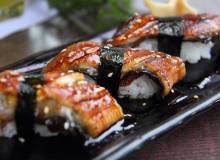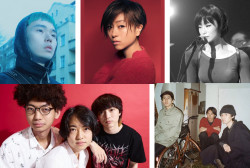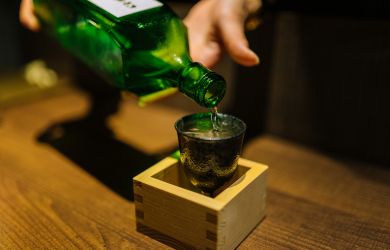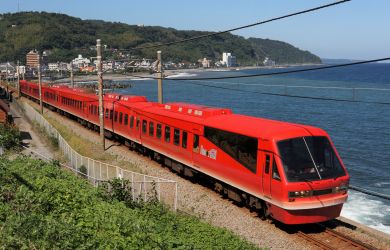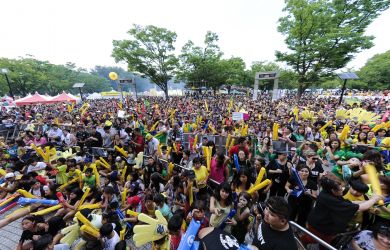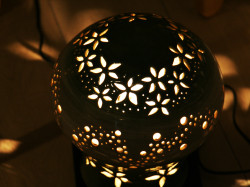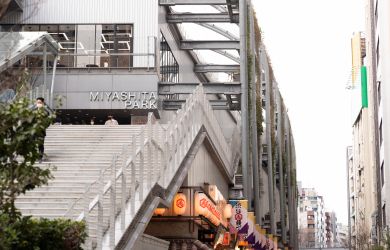
July 24, 2009
Through the Monocle
Most expensive, most livable... with Tokyo, it’s all about who you ask
By Metropolis
Originally published on metropolis.co.jp on July 2009
These prices suck!” complains Bart when he and his family visit a Tokyo restaurant in a 1999 episode of The Simpsons. “¥10,000 for coleslaw?”
Such, alas, is the enduring reputation of this city. Though it’s been 20 years since the peak of the Bubble Era, Tokyo is still famed for its exorbitance. Earlier this month, the city reclaimed the number one spot in Mercer’s annual Cost of Living survey, buoyed by the strength of the yen. The BBC dutifully quoted its Japan man as saying this “would not surprise locals, who could find themselves paying $15 for a watermelon and $25 for a mango”—which struck me as an asinine bit of reporting until I spotted a shop near my local station hawking watermelons for ¥2,000 a pop.
But, really, is it that bad? What often gets forgotten with the Mercer survey is that it’s actually quite specific in its aims. Far from being a one-size-fits-all guide, the results are intended to help companies determine salaries when sending employees overseas. To exchange one stereotype for another, if you don’t live in a luxury apartment in Hiroo and do all your family shopping at National Azabu, Mercer’s findings might not really chime with your own experience of Tokyo.
Last month, a different survey painted the capital in an altogether rosier light. For the past three years, Monocle, the current affairs/design/culture magazine started by Wallpaper* founder Tyler Brule, has been releasing its own city ranking, focusing on quality of life rather than brute economics. In this year’s list, Tokyo once again occupies the third spot, with only Zurich and Copenhagen scoring higher.
“The reason we did it in the first place was that, when we looked at all these city surveys… they seem to be missing out on a huge chunk of what actually makes a city quite pleasant or livable,” explains editor Andrew Tuck when I catch him at the magazine’s Tokyo office during a flying visit. “Can you go for a drink at 1 o’clock in the morning? Is there a vibrant restaurant scene? If you come back from a trip on a Saturday, can you go and do your shopping on a Sunday? All these small things also make a city function.”
The Monocle metric takes account of public transport, crime rates and education, but also hours of sunshine, international flight connections and “chain store pollution.” These are, Tuck admits, “softer” and “more subjective” aspects of the city experience. But what of it? “Even when people pretend that their guides are 100 percent scientific, there is an element of what makes a city work for you.”And, in Monocle’s case, Tokyo works rather nicely. The city is praised for its service culture, efficient public transport, low crime and abundant greenery. Tuck also admires the 2016 Olympic bid, which proposes to use existing buildings as much as possible rather than embarking on a construction spree. “It’s a real shame that that wasn’t a lesson learned in London,” he notes drily.
“I think what’s interesting about Tokyo is: here’s a massive metropolis that actually works,” he says. “Whereas that’s why, for us, we haven’t put on London or New York, because they don’t have that efficiency at their heart—they don’t tick in quite the same way.
“We also make it very clear that this isn’t a ranking of the most exciting places to live, or the grittiest, or the best place to be an artist, or the best place to become a millionaire. It really is about livability—so it’s about public transport, the green city, the ease of being able to set up a small company. Those are the kinds of things that matter.”
Monocle’s approach has attracted flak in some quarters for being too one-sided, too whimsical, but it’s not without its supporters. Since starting the survey, Tuck says that the magazine has become “very central to a debate” on livability, and that they are regularly contacted by city halls around the world looking for advice on how to up their game. Shintaro Ishihara is also a fan. When the Tokyo Governor spoke about the Olympic bid at the Foreign Correspondents Club of Japan earlier this year, he held up the Monocle survey as an indication of what the capital was doing right.
“He was interested by the fact we like Tokyo so much,” says the magazine’s Asia bureau chief, Fiona Wilson. “I think he’s probably used to hearing a lot of negative comments, so he’s quite interested in anyone who’s really, really positive about it.”
Wilson has lived here for nine years herself, and admits that she struggled to think of any bad points about Tokyo for this year’s survey. “Sometimes you hear people complaining, and you think, ‘Hang on a minute,’” she says. “I was having dinner the other night, and the waitress was being super polite. And this English person went, ‘Oh, she’s so polite, it’s really irritating…’”
Tuck roars with laughter. And well you might.

